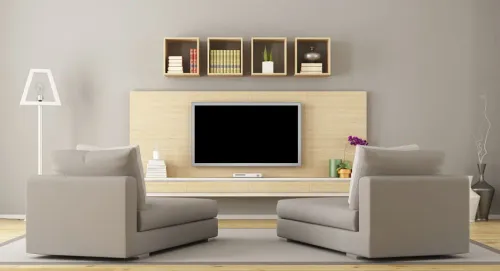You’ve done research, budgeted for upfront costs and compared units, but just can’t seem to make sense of the different HVAC systems available. You aren’t alone. When it comes to selecting the right unit for maximizing your home’s comfort, performance and efficiency, the variety of options can feel overwhelming.
Hiring the right HVAC contractor can alleviate these concerns. Your HVAC contractor should work with you to ensure your home will be conditioned properly without breaking the bank. A certified professional HVAC contractor will make recommendations and specify the best system for your conditioning needs based on your home’s square-footage, layout, building materials, occupancy and outside climate.
Improper installation or servicing is a quick way to sour an HVAC brand’s reputation for a homeowner. With this in mind, HVAC contractors pursue training opportunities to learn the ins and outs of the brands they work with. Mitsubishi Electric, for example, offers product courses, HVAC contractor training and other education to keep our network of HVAC contractors well-versed in our innovative technology.
Homeowners however, must also take a certain amount of responsibility to ensure their needs will be met. Start by knowing the basics of your home’s requirements and being candid with your prospective HVAC contractor about hot/cold spots or other concerns, as well as occupancy and how you will use spaces within your home, such as a home office. An HVAC contractor will have vastly different solutions if, for example, every inch of your home is lived in versus if an entire level is only used when the kids are home from college.
The next step is knowing the right questions to ask once you’ve found an HVAC contractor who meets your budget and timeline, and gives you a good gut feeling. Their responses will be a good indication of how satisfied you’ll be once the installation is complete, and help you understand the value you’re getting from their services.
The questions you ask will vary based on your home and its unique requirements,
but here are a few you’ll want to include:
- What are the indoor unit options for my home’s design and square footage? How many do I need?
- Does my home’s design support ductwork, or are ductless systems the best option for me? What are the pros and cons of each?
- What’s the temperature range that this system can handle?
- How does this system handle partial loads? (“Load” just refers to the amount of heating or cooling needed to bring a space to a comfortable temperature or “setpoint.” Your HVAC contractor will be able to explain.)
- How frequently does the system need to be serviced? What kind of maintenance does the system need? What kind of maintenance program do you offer?
- If I choose a split-ductless system, what kind of utility cost savings can I expect compared to a conventional system?
- Will any supplemental equipment be necessary to achieve my energy usage goals?
Asking the right questions is especially important if you have specific energy goals in mind, such as achieving net-zero-energy or passive-house status.
It’s your HVAC contractor’s job to specify and install an appropriate system for your home, but asking pointed and informed questions as a homeowner will help you get the most value from the HVAC contractor’s services. You don’t need to be an expert. A good HVAC contractor will fill in the gaps and explain what your options mean in practical terms of comfort and potential cost savings.









